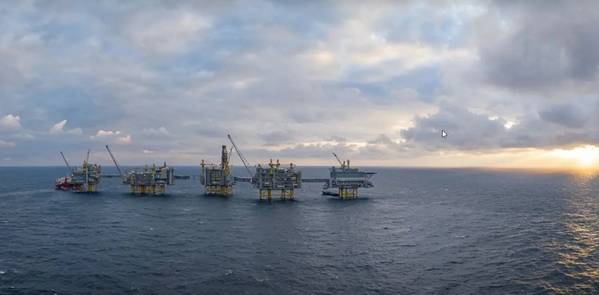
Production at the Equinor-operated Johan Sverdrup oilfield, the North Sea's largest, is expected to start declining from peak levels in about a year, partner Aker BP said on Thursday.
Sverdrup's production was ramped up last year to 755,000 barrels of oil per day (bpd), more than the originally planned 660,000 bpd, after the second phase of development came on stream.
The field produces medium-heavy crude similar to Russian Urals and its production helped to replace some of the Russian barrels lost in Europe after Western sanctions over Moscow's invasion of Ukraine in 2022.
"The operator expects to be able to maintain the current elevated production level until late 2024 or early 2025," said Equinor partner Aker BP, which has a 31.6% stake.
Aker BP previously expected the production plateau to continue "well into 2025", CEO Karl Johnny Hersvik said on Thursday.
"That means (production) guidance for 2024 is a bit lower than we assumed a year ago," he told an investor presentation.
Aker BP guided for its overall production to be at 410,000-440,000 barrels of oil equivalent per day (boed) this year, reflecting uncertainty over when Sverdrup output would start to decline.
The field produced 457,000 boed last year, with Aker BP's share contributing 54% of that.
Equinor's press office did not respond immediately to a request for comment.
"What's important to note is that there are no reserves changes (for Sverdrup)," Hersvik said.
The field was estimated to hold reserves of 2.7 billion barrels of oil equivalent when production started in October 2019.
Aker BP said an additional eight Sverdrup oil wells were planned to come on stream this year.
Its Oslo-listed shares were down 1.4% by 1315 GMT while Equinor was down 2.1% compared with a 0.7% fall for European petroleum stocks.
Equinor has a 45.6% stake in Sverdrup, TotalEnergies holds 8.4% and Norway's state-owned Petoro 17.4%.
(Reuters - Reporting by Nerijus Adomaitis; Editing by Gwladys Fouche and David Goodman)